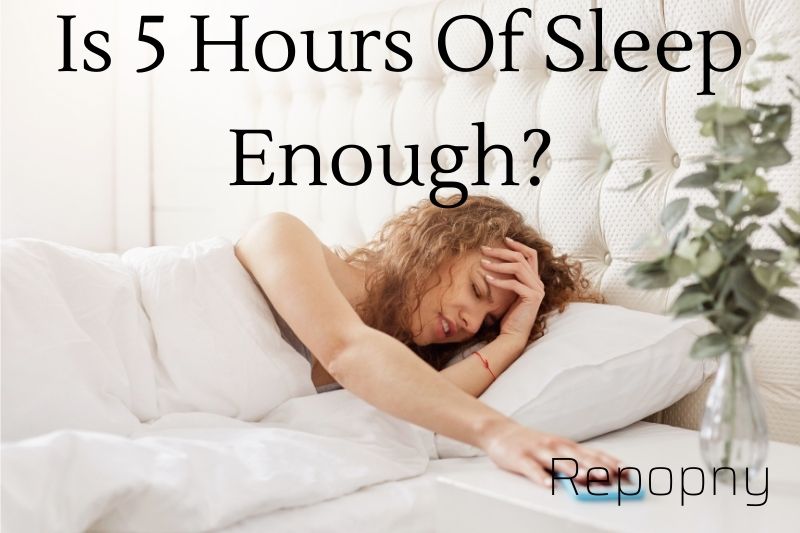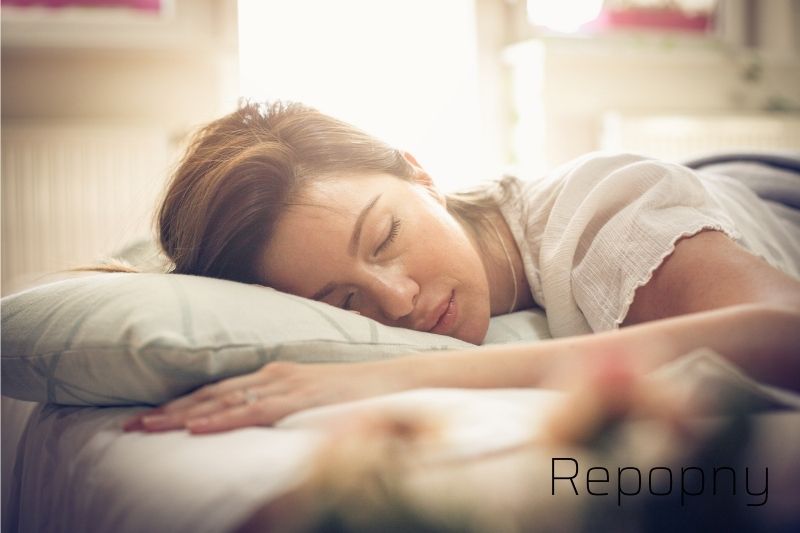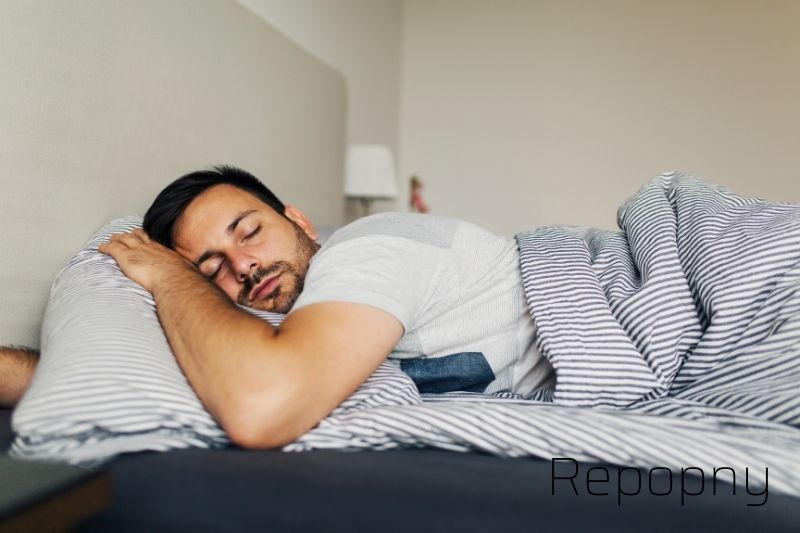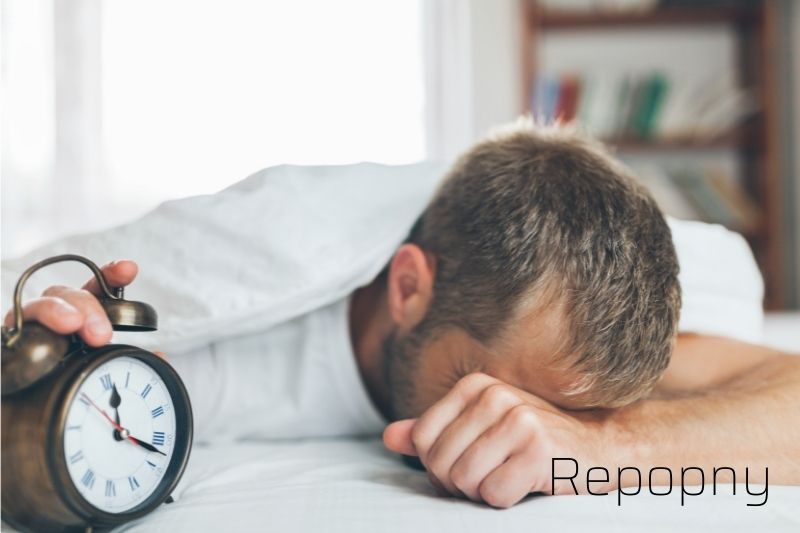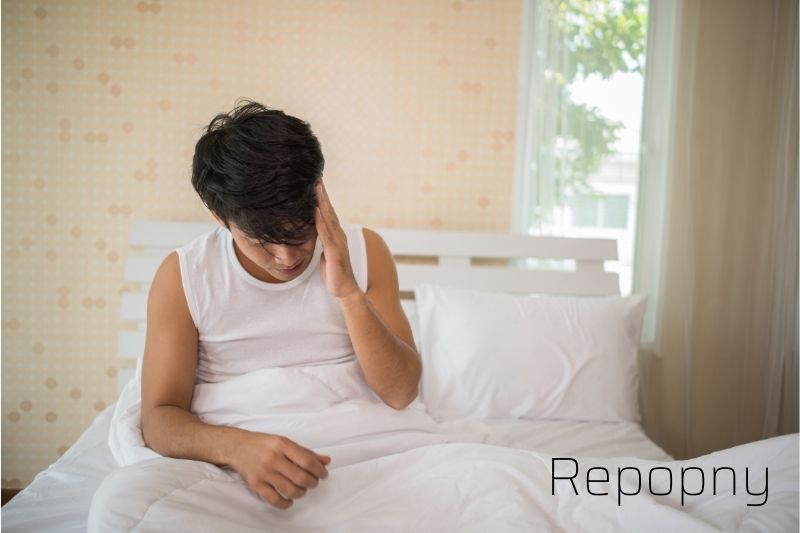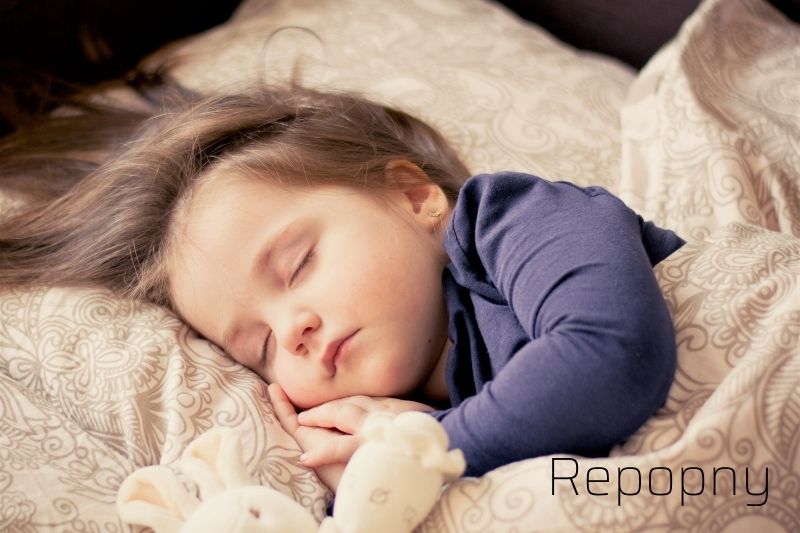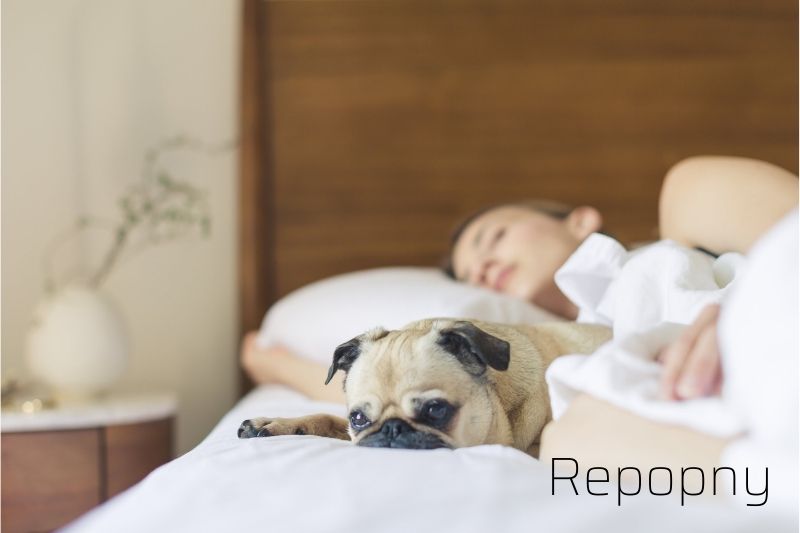- Repopny
It’s a common question: Is 5 hours of sleep enough? The answer, unfortunately, is not clear-cut. It depends on various factors, including age, lifestyle, and health.
For some people, 5 hours may be enough to function correctly during the day. But for others, it may not be enough, and they may experience fatigue, irritability, and difficulty concentrating.
Do you stay up late studying, or are you a new parent? Sometimes, life gets in the way, and we don’t get enough sleep. However, five hours out of a 24-hour day is insufficient, especially over time.
The body’s ability to operate reduces if it isn’t in the seven- to the eight-hour range, according to a 2018 research of more than 10,000 participants. Researchers discovered that people’s language, reasoning, and overall thinking ability were not up to par.
You’ll need seven to eight hours of sleep per night to function at your best.
- communicating
- planning
- decision-making
Contents
- 1 What Is The Ideal Amount Of Sleep?
- 2 Why You’re Not Doing Fine With Only 5 Hours of Sleep
- 3 What Are The Signs And Symptoms Of Not Getting Enough Sleep?
- 4 Health Risks From Lack Of Sleep
- 5 How Come We Don’t Get Enough Sleep?
- 6 Getting Enough Sleep Has Numerous Health Benefits
- 7 Ideas For A Better Night’s Sleep
- 8 Conclusion
What Is The Ideal Amount Of Sleep?
Many of us are sleeping insufficiently. According to the Centers for Disease Control and Prevention (CDC), More than one-third of American adults do not get enough regularly sleeping.
For healthy persons without sleep issues, the National Sleep Foundation recommends the following time duration of sleeping:
- 14 to 17 hours for newborns
- 12 to 15 hours for infants
- 11 to 14 hours for toddlers
- 10 to 13 hours for preschoolers
- 9 to 11 hours for school-aged children
- Teenagers should get 8 to 10 hours per night.
- 7–9 hours for young adults
- Adults should get 7 to 9 hours
- Adults over the age of 65: 7 to 8 hours
Why You’re Not Doing Fine With Only 5 Hours of Sleep
We overestimate our ability to stay awake and aware after one night — or several nights — of little sleep (defined as less than you medically need — more on that later). “Hey, I’m not doing so bad after all!” you presumably think. The truth is that you’re doing a terrible job!
Here are five persuasive reasons to refute that frequent misunderstanding and demonstrate why you aren’t coping as well as you think:
1. You Need More Than Five Hours of Sleep
If you believe you’re one of the lucky ones who can function on little sleep — say, five hours a night — think again. “The amount of people who can survive on 5 hours or less without any impairment, expressed as a percent of the population, and rounded to a whole number, is zero,” states Dr. Thomas Roth in Matthew Walker’s book, Why We Sleep.
“It’s much more likely that you’ll be hit by lightning (the lifetime odds are 1 in 12,000) than that you’ll be capable of surviving on minimal sleep thanks to a rare gene,” Matthew Walker adds.
If you only get five hours for sleeping, you’re not reaching your biological requirement, a genetically set attribute like height or eye color. To function efficiently, most individuals require 7-9 hours every night, with a simple average of 8 hours and 10 minutes to avoid neurobehavioral damage. (The RISE app will tell you EXACTLY how much sleeping you need to have more energy during the day.)
As you become older, your requirements may alter. Preschoolers, for example, sleep an average of 10-13 hours every night, but older adults (65 years and older) sleep an average of 7-8 hours.
Furthermore, even if you think it for five hours each night, you’re probably sleeping for considerably less. According to research, we tend to overestimate our sleep duration compared to the actual quantity we get.
To make matters worse, sleep fragmentation is a reasonably typical occurrence, with many people being awake for up to an hour per night. Almost probably, five hours in bed does not equate to five hours.
2. You’re Making Mistakes With Cues
You may believe you are a “good” sleeper if you fall asleep when your head strikes the pillow. You can chalk up moderate daytime sleepiness to not having had your morning coffee yet, or you might think it’s completely normal.
Immediately falling asleep, on the other hand, may indicate severe sleep deprivation. Meanwhile, what you think is mild tiredness means severe sleep deprivation.
Indeed, one of the field’s founders, William Dement, was frequently seen repeating his world-famous phrase, “Drowsiness is a red alert.” Even if you only feel mildly fatigued during the day, it’s a sign that your body is already sleep-deprived.
3. You Believe You Can Make Sleep Work For You
Many people are being persuaded to focus on quality rather than duration because of the dubious concept of “sleep hacks.” We believe that if we use the correct methods and tips, we can squeeze our specific sleep requirements into only five hours of sleep and get away with it. Unfortunately, it isn’t how sleeping works.
According to science, the human asleep cycle has four stages: Non-rapid eye movement (non-REM) sleep is stages 1-3, while REM sleep is stage 4. We go through these steps 4-6 times each night, averaging 90 minutes in each location. As a result, many of us aren’t equipped to function for only 5 hours per night.
Furthermore, sleep limitation for one night or numerous nights in a row preserves slow-wave sleep (stage 3) while diminishing stage 1, stage 2, and REM sleep. Because REM sleep is required for critical activities such as memory consolidation and problem-solving, shortening this cycle would almost certainly result in cognitive impairment in your waking hours.
Furthermore, recovery after sleep restriction demonstrates that the brain self-regulates in the face of sleep deprivation, disproving “sleep hacks.” In other words, you cannot choose how long you spend in each stage of sleep. Only the impediments to natural, healthy may be removed.
4. Your Mind and Body Are Playing Games With You
Within a few nights of short sleep, we adapt biologically. You may believe you’re doing OK, but your performance is deteriorating. Your low energy levels begin to feel normal in days, while your daytime functioning and overall well-being are subjectively deteriorating.
A rise in cortisol levels (a stress hormone that improves alertness) the next day is why you might not feel exceptionally exhausted after a night or several nights of poor sleep.
Furthermore, because it acts independently of drive sleeping, your circadian rhythm (i.e., your body’s internal clock that controls your energy peaks and troughs during the day) continues to march on in the background.
Even when you’re severely sleep-deprived, high-stress levels combined with your circadian energy peaks allow you to function (albeit not at your best). (Keep in mind that these peaks could be so much better if you had had more sleep!)
5. You’re Not Putting Those Extra Three Hours To Good Use
Sleep deprivation stops you from productively utilizing those extra hours of awake, contrary to your game plan of sleeping less to do more. In his book Why We Sleep, Matthew Walker describes it wonderfully “A human being’s recycling rate is roughly 16 hours.
The brain begins to degrade after 16 hours of waking time.” In other words, you may believe you’re saving money by sleeping more minor, but this is just not true intellectually, emotionally, or medically.
What Are The Signs And Symptoms Of Not Getting Enough Sleep?
The following are some of the first signs of sleep deprivation:
- extreme drowsiness
- yawning
- inability to concentrate
- irritability
- weariness during the day
- forgetfulness
- anxiety
The longer you go without sleep, the worse your symptoms become. You might even have hallucinations.
Health Risks From Lack Of Sleep
Sleep deprivation has several negative health consequences, including:
The performance of the brain is similar to that of an older person. Severe sleep deprivation was the subject of a 2018 study (no more than four hours a night). According to researchers, it caused a loss in thinking abilities equivalent to adding nearly eight years to one’s age.
Diabetes is a possibility. Sleeping too little (six hours or less) is linked to an increased risk of diabetes. Oversleeping (nine hours or more) was also linked to a higher risk of heart disease.
Death at a young age. A meta-analysis and review published in 2010 That sleeping too little at night increases the risk of dying young.
There’s a chance you’ll have a stroke or develop heart disease. A review from 2011, People who sleeping less than seven hours per night had a much higher risk of stroke or heart disease than people who sleeping seven to eight hours per night, 15 research.
How Come We Don’t Get Enough Sleep?
Sleep deprivation is typically caused by the following factors, according to the American Academy of Sleep Medicine:
Health issues that lie under the surface. It might be disrupted by a chronic sleep disorder or another disease.
Insufficient sleep syndrome is caused by behavior (ISS). This is the medical word for delaying engaging in another activity, such as watching television.
Obligations of employment Your schedule may be disrupted if you work long or irregular hours. Some persons may acquire a sleep disturbance due to their shift job.
Personal responsibilities. Bringing a new infant home or caring for an adult are two examples.
Getting Enough Sleep Has Numerous Health Benefits
Getting enough sleep offers significant mental and physical health advantages. When you start sleeping more, here’s what you can expect:
Better mood: Getting enough improves your mood (although you probably knew that already).
Improved motor skills: Do you struggle with clumsiness? According to a tiny 2002 study, having enough sleep enhanced participants’ motor speed by 20% without reducing accuracy.
Better sports performance: Studies show that getting adequate and sticking to a schedule of sleeping can help professional athletes perform better. Why not you as well?
Sleep deprivation affects your skin barrier, or the outermost layer of skin, resulting in more youthful-looking skin.
Ideas For A Better Night’s Sleep
Because quality matters in sleeping, make an effort to get a good night’s sleep. Here are some suggestions to help you sleep better:
- Maintain a consistent schedule. Regularly going to bed at the same time each night aids in the regulation of your internal clock. Poor sleep quality and duration have been linked to sleeping on an irregular schedule.
- Establish a relaxing nighttime ritual. We are adopting a soothing routine before bedtime that can assist you in falling asleep. Listening to music, for example, has been proved to improve.
- Create a relaxing atmosphere. You can sleep better if you are in a calm, dark environment with a pleasant temperature. Poor sleep is associated with being too active before bed, being too hot, or being in a noisy environment.
- Caffeine, alcohol, and nicotine should all be avoided. Caffeine, alcohol, and nicotine usage have been associated with poor quality in studies. Caffeine should be avoided in the afternoon and evening.
- Reduce your electronic usage. Excessive usage of technology and cell phones has been linked to poor quality. Even a little exposure to strong room lights before bedtime might hurt it.
- Increase your level of activity. Inactivity has been linked to lower sleep in studies, but taking some exercise throughout the day may help it better at night.
- Meditation is an excellent thing to do. Although the data isn’t conclusive, meditation and relaxation training may improve quality and brain function.
Conclusion
The studies show that less than 5 hours of sleep can harm your mood, performance and judgment. A good rule of thumb is to get 7 to 8 hours of sleep. If you’re not getting this amount, make a note of when you wake up and keep track of it. Repopny hopes you find this article helpful.
